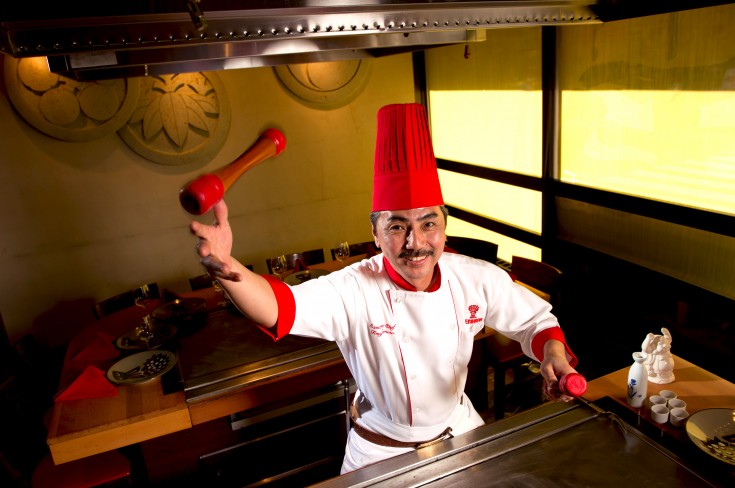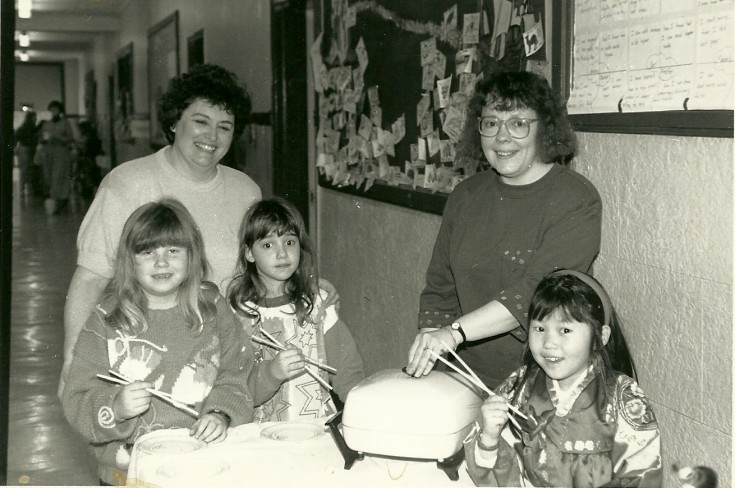
This week's episode of The Sporkful podcast is up! Listen through the player or iTunes/Podcasts app. (And please subscribe!)
In 1964 Rocky Aoki, a Japanese immigrant, created hibachi restaurants in America when he opened his first Benihana. Rocky later said that he based his concept on the idea that "Americans enjoy eating in exotic surroundings, but are deeply mistrustful of exotic foods.”
In other words, Americans thought samurais and geishas were cool, but most people had no intention of eating raw fish.
So Rocky combined Japanese decor with familiar grilled meats, plus a heavy dose of showmanship, and hibachi was born. The restaurant took off, and Rocky became a celebrity with a fondness for speedboat racing and luxury cars.
But Rocky's legacy is complicated. He created Benihana to appeal to an American customer base that wanted Asian culture presented in a certain way -- exotic but not threatening. Over time, that pressure has forced many hibachi chefs to play up stereotypes for laughs -- from joking about the food being cat or dog, to speaking in a fake Asian accent.
According to Robert Ku, Associate Professor of Asian American studies at Binghamton University, "Chinese food, and wonton soup for instance, has been in America longer than the hot dog, and yet the wonton soup is seen as perpetually foreign, even though it’s been around for 150 years." Professor Ku says that this perception of Chinese food in America is one reason why Chinese Americans continue to struggle to be seen as legitimately American.
In this week's show we hear from people who knew Rocky, and we talk with a hibachi chef who's one of the more daring performers you'll find. (His performance sometimes includes lighting his chef coat on fire while he's wearing it!) We also hear from a former hibachi chef who says he was pushed to act "more Japanese" and talk "more foreign", and who left the job because of this pressure.
We see the skill it takes to be a great hibachi chef, and look at what happens when the performance becomes problematic.
Interstitial music in this episode by Black Label Music:
- "Rooftop Instrumental" by Erick Anderson
- "Clean" by J.T. Bates
- "Pong" by Kenneth J. Brahmstedt
- "Nice Kitty" by Black Label Productions
- "Stay For The Summer" by Will Van De Crommert
- "Still In Love With You" by Stephen Clinton Sullivan
- "Summer Getaway" by Stephen Clinton Sullivan
Photo: Florida Keys Public Library


